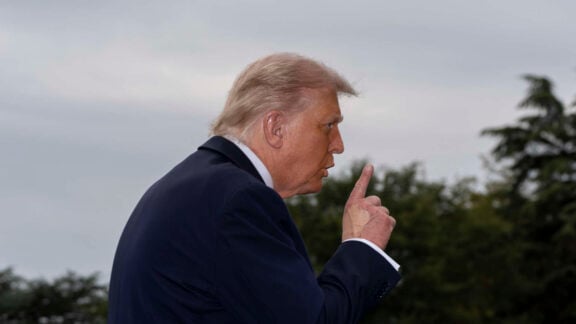It was a great moment. Of that there is no doubt. Greece was down and seemingly out at the Karaiskaki stadium, with all hope lost as the national team was heading for defeat against Bosnia-Herzegovina.
Enter Giorgos Tzavellas. With the clock running on empty, the PAOK defender stepped up and unleashed a vicious volley from the edge of the box, blasting the ball past the quite brilliant Asmir Begovic, levelling the score and giving Greece a valuable point, a point that keeps them second in Group H, two points behind a rampant Belgium side and three points ahead of the Bosnians. As the rest of the Greek team mobbed Tzavellas, celebrating wildly, it seemed as though the World Cup dream was very much on. Qualification was and still is within reach.
But after the ecstasy of avoiding defeat at the death, after the chest-beating and fist-clenching, perhaps it would be rather more useful to see where that draw actually leaves the national side. While it is all fair and well to point out that Greece is still holding on to second place, it would ultimately seem rather short-sighted, especially when taking into account that by the end of the next batch of games on 25 March, the national team will most likely have handed that prized second-place position to Bosnia. With a trip to Belgium next on the cards for Skibbe’s men and with the Bosnians hosting a punch-drunk Gibraltar side, it would take nothing short of a miracle for the Greeks to not be leapfrogged by Pjanic and company.
And while letting second place slip from their hands would not be a catastrophe after just five games, it’s worrying to note that Michael Skibbe has still done very little to address the team’s clearly evident problems, problems that could cost Greece further points down the line and seriously dent its qualification chances.
It can’t be denied that Skibbe has done an admirable job in balancing a listing ship, by establishing a core set of players and implementing a go-to tactical plan, but he still has a long way to go, and that distance cannot be covered while he still experiments during crucial qualifying games.
Against Bosnia, the German coach once again tried a new holding midfield duo, with Andreas Samaris and Giannis Maniatis told to break up Bosnian attacks and provide a shield for the defence, a task made even harder by the absence of Kostas Manolas, who is clearly one of the stand-out players in this squad.
On top of that, Skibbe strangely opted to field two full-backs on the team’s left flank, with Giorgos Tzavellas playing at left back and Kostas Stafylidis getting pushed up to left midfield. Skibbe’s experiments ultimately failed to work, with Stafylidis providing little threat in an unfamiliar role and Samaris unable to set-up too many roadblocks, left as he was to fend pretty much for himself, with Maniatis’ lack of match fitness brutally exposed by a rampant Bosnian midfield.
Just like the previous matches in this qualifying stage, Greece was unable to take control of the game in the first half, ceding possession and hoping not to concede a goal before it established a foothold on the game. With lesser opposition, this was a gamble that eventually paid off. With the Bosnians it was a completely different story. Juventus playmaker Miralem Pjanic conducted proceedings effortlessly, lofting passes over the Greek defence, skipping past markers and eventually curling a free kick towards the Greek goal, with the ball bouncing off Karnezis to give the Bosnians a much deserved lead.
Arguably, Bosnia could have had a few more and should have put the game to sleep much earlier, but with Edin Dzeko struggling to fire home from a handful of chances and Socratis Papastathopoulos putting in another superb display at the heart of Greece’s defence, Skibbe went in at half-time, with the match very much in the balance.
With the equaliser coming with the last kick of the game and a point snatched from the snarling jaws of defeat, the German coach was understandably relieved, but even he must know that this was surely a case of two points dropped, not one point earned. Bosnia, although possessing some players of real quality in Begovic, Pjanic and Dzeko, among others, are definitely not a world class side, so the ease with which they cut through Greece in the middle of the park, creating chances at will, must surely show Skibbe that his midfield issue must be solved. And in a hurry too. If the trio of Pjanic, Lulic, Jajalo and Hajrovic could so effortlessly control proceedings, one would shudder to think at what De Bruyne, Carrasco, Witsel and Meunier would do to this Greek midfield.
Thankfully, March is still quite a way away and one would hope that by then, Skibbe will have plugged a few more holes in his ship. There is still a lot of work to be done here and it would be a shame for this team to lose the good feeling that it created after the consecutive wins it notched up in the early stages of this qualifying stage. But make no mistake about it. The trip to Belgium is vital. Lose by a demoralising margin and Greece’s World Cup hopes could be in tatters. Fight the good fight, however, make the Belgians struggle to get those three points, and it could go down to the wire with the Bosnians in the race for second place.
It’s hardly an easy task, but deep within the soul of the national team, there has to be something left over from the gritty sides of the recent past. It’s down to Skibbe to dig that up.







